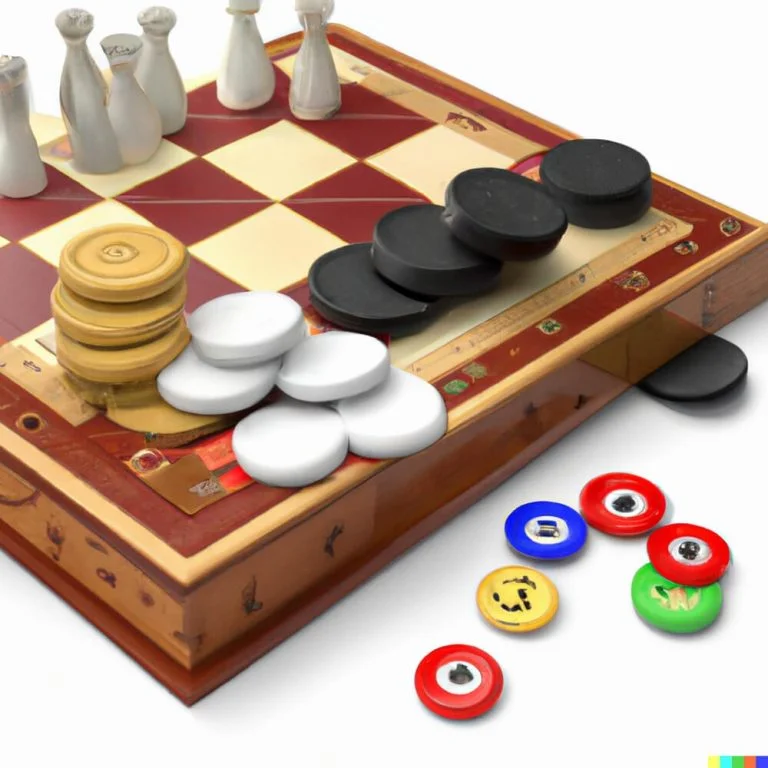Developing a Business Model
When developing a business plan for a Board Game Cafe, it is important to explore different business models and understand how to optimize profits and minimize risks. One of the first steps in creating an effective business model is to decide how the cafe will make money. This could include charging for entrance or for the cost of renting tables, or offering food and drink items at an additional charge. Knowing which elements will require customers to pay, and how pricing will be structured, can help ensure that profit margins are maximized.
In addition to creating a revenue stream from customers directly, another way to generate income could be through sponsorships or partnerships with board game companies and other related businesses. This could involve giving customers discounts on popular products or free giveaways if they spend a certain amount at the cafe, thus driving more foot traffic. Implementing loyalty programs can also provide monetary benefits when executed correctly; therefore this should be taken into consideration when formulating the business plan too.
Finally, understanding potential risks associated with the venture is important in order to anticipate any challenges that could arise in the future”such as changing customer needs or market trends”and create strategies that mitigate them accordingly. For example, having backup plans in case certain suppliers fall through or understanding potential unexpected costs associated with maintaining services/products of high quality can help reduce financial losses should things not go as planned. Taking these steps while forming a Board Game Cafe business model can help ensure that owners are prepared for any situation they may face during their endeavor.
Design Tips
Creating an inviting atmosphere for a board game cafe starts with the decorations and furniture. To give guests a unique experience, find pieces that are game-themed, such as classic chess tables or whimsical ’80s backgammon boards. Additionally, try to source vintage arcade games and custom built designs like life-sized Jenga towers in order to really capture your visitors’ attention. For seating, look into armchairs or classic leather sofas to match the classic feel of the games. Finally, don’t forget to include small details such as neon signs or custom art prints on the walls to provide an extra level of charm. With these tips in mind, you’ll be sure to create a fun and inviting board game cafe environment that your customers will love!
Event and Promotion Strategies
Events:
Organizing special events can be a great way to target board game players and attract new customers. Start by organizing casual game nights on a regular basis, such as twice a week. Promote the event on social media, local ads, or even mailers to ensure that people know it is happening. It’s also important to contact local board gaming groups directly to let them know about your events and what you offer.
Competitions are also popular with board game players and make for excellent entertaining events. Have customers play against each other in short tournaments with small prizes like free top-ups if they win or discounts on food or drinks if they come out on top overall!
Promotions:
Bringing in more customers is key to successful board game cafe business, and promotional strategies can be just the thing to do this. Consider offering discounts on certain days and times (weekdays tend to be slower than weekends) or give away free items with purchases – anything from a meal voucher or discount card up to an actual mini-game from one of your shelf games! Try creating packages too; for example an early bird package which includes food/drinks plus one hour of unlimited games for X amount of money. Offering loyalty programs also tends to draw more repeat customers than just regular advertising does. Having different tiers of loyalty could be very beneficial, depending on how much of an impact you think it will have on sales. Giveaways are always appreciated too, try having contests occasionally with larger prizes that include several products from the cafe (such as gift cards).
Potential revenue streams and alternate options
When developing a board game cafe business plan, potential revenue streams should be considered in order to sustain operations and explore opportunities for business growth. These could include income from customer fees, event hosting, merchandise sales, food and beverage sales, subscription services (such as regular gaming nights/tournaments), and other add-on services like subscription boxes or storage services. Furthermore, expanding into other activities such as running specialized events for custom groups (corporate team building or birthday parties) or offering discounts for bulk purchases of board games may also bring additional revenue streams that can help contribute to the sustainability of the cafe. Finally, the business can consider exploring options like franchising the concept in different locations or setting up online streaming of gameplay sessions to attract new customers from all around the globe while still maintaining low overhead costs. All these potential revenue streams and alternate options should be taken into consideration when creating a strategic plan for success.
Legal and Regulatory Guidelines
Legal and Regulatory Guidelines can vary significantly depending on the municipality, state, and country in which a Board Game Cafe operates. While it’s essential to check applicable regulations prior to opening a Board Game Cafe, some common legal aspects a Board Game Cafe owner needs to consider when creating their business plan include:
– Age Restrictions: Depending on the location of your Board Game Cafe, there may be imposed minimum age restrictions when patronizing the premises. It’s important to research and understand the restrictions in order to comply with local laws.
– Employer-Employee Laws: Owners must know relevant employment laws when hiring and training staff, from setting wages and vacation policies to ensuring appropriate documentation is obtained for all employees before beginning employment.
– Health & Safety Standards: It’s important for all business owners to familiarize themselves with industry best practices for health and safety standards in regards to food preparation, storage and serving as well as other relevant procedures.
– Building Regulations: Ensure that your business abides by all building codes and licenses required in the area where you will be operating, especially if you are seeking funding from a bank or other financial institution who may require proof of compliance prior to granting financing.
Collaboration and Networking
Collaboration and networking are key components of any successful business plan. Utilizing existing relationships with local businesses and building new ones will be essential for the success of a board game cafe.
Potential collaborations could include strategic partnerships, such as partnering with local restaurants that can provide food to the cafe’s customers. This collaborative effort could offer customers discounts on both food and gaming services when purchased together. Similarly, partnering with near-by lodgings or tourist attractions can bring in more visitors, offering great potential for both businesses to succeed.
Network-building is also very important in generating attention for the board game cafe business plan. Creating social media accounts, hosting events, and getting involved locally every chance you can create a sense of familiarity with the business that encourages people to visit. Inviting influencers to spotlight the cafe on their platforms can also help spread awareness quickly and easily to a large audience of new potential customers. Furthermore, utilizing other community resources like small business fairs or workshops may open even more doors for growth opportunities.
Sustainability and Scalability
Sustainability and scalability are important considerations for any business. When it comes to a board game cafe, creating a system to ensure the sustainability of the business should be a priority. This could mean working on strategies that focus on improving customer retention, increasing profitability through repeat business, as well as making sure there is an appropriate network of suppliers in place to guarantee that stock levels remain consistent.
Scalability will also be pivotal in making sure the board game cafe can grow over time. This may include investing in additional services such as catering and offering exclusive events, diversifying into different markets such as corporate team building or children’s birthday parties, and leveraging technology such as online booking systems. Developing robust marketing plans and launching campaigns to target new customers are also needed when aiming for maximum scalability.

I love playing all kinds of games – from classics like Monopoly to modern favourites like Ticket to Ride.
I created this blog as a way to share my love of board games with others, and provide information on the latest releases and news in the industry.





